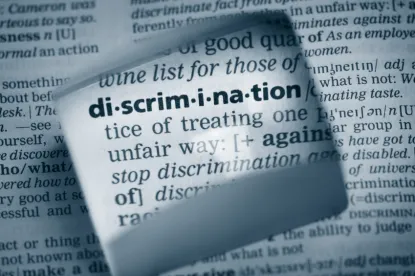In a case that is sure to alarm employers, the Wisconsin Court of Appeals ruled in Wisconsin Bell, Inc. v. Labor and Industry Review Commission that an employer may be prohibited from disciplining an employee for misconduct or performance issues that are caused by the employee’s disability. The court’s decision in Wisconsin Bellpotentially broadens protections for employees under the Wisconsin Fair Employment Act (WFEA) and represents a stark departure from federal law.
Under the American’s with Disabilities Act (ADA), an employer is generally free to discipline an employee who violates the employer’s conduct requirements that are job-related, consistent with business necessity and consistently applied, even where the conduct is caused by a disability. The EEOC’s guidance on conduct standards for disabled employees has consistently applied this rule.
Charles E. Carlson worked for Wisconsin Bell (now AT&T) as a call center representative in 2010 and 2011. According to his physician, Carlson suffered from bi-polar disorder, which caused Carlson to experience episodes of mania followed by periods of depression. Due to his bi-polar disorder, “relatively minor frustrations” caused Carlson to experience “extreme moods.”
In 2010, Carlson abruptly hung up on nine customers, claiming that he did so because of an on-set of his disorder. Wisconsin Bell nonetheless suspended Carlson for his actions. After returning from suspension, Wisconsin Bell allowed Carlson to use a special code to go “off line” for health reasons. Other employees would typically go off line for 3-5 minutes, including for restroom or other brief health-related breaks. Carlson used the code for 38 minutes, during which time he used Wisconsin Bell’s instant messaging system to talk to co-workers. In so doing, Carlson accidentally sent a message intended for a co-worker to his supervisor and then asked to leave for the day.
After confirming that Carlson was chatting with co-workers, Wisconsin Bell determined that Carlson inappropriately used the code. Carlson claimed that he had an episode after failing a test for promotion and that he was reaching out to co-workers for support, as suggested by his therapist. Carlson was ultimately terminated.
After filing a complaint with the Wisconsin Equal Rights Division (Division) and a hearing, the administrative law judge determined that Carlson’s conduct was caused by his bi-polar disorder. The ALJ thus ruled that Wisconsin Bell’s decision to suspend and terminate Carlson were based upon his disability and violated the WFEA. After several levels of appeal, the Wisconsin Court of Appeals agreed that an employer can be held liable for disability discrimination when it takes an adverse employment action based on conduct by an employee that is caused by a disability.
Unless and until the Wisconsin Supreme Court considers this case, Wisconsin employers should consider the ramifications of the Court of Appeals’ ruling when taking action against a disabled employee. Employers would be wise to engage in the interactive process to identify possible reasonable accommodations that may allow the employee to meet expectations before resorting to disciplinary action.



 />i
/>i

